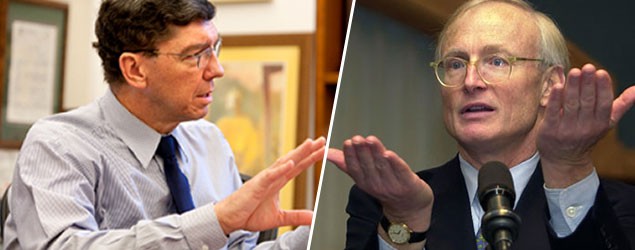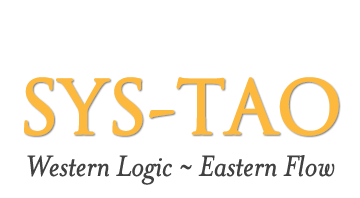
In “The Disruption Machine” (a recent article in The New Yorker magazine, June 23, 2014) Jill Lepore comments on the works of two of The Harvard Business School’s most prestigious professors, Michael Porter and Clayton Christensen. Porter coined the term “competitive advantage” in 1980, and Christensen coined the term “disruptive innovation” in 1997.
Porter’s thesis explains how companies achieve success. Christensen, on the other hand, explains that these same companies fail because they hold on too long to what made them successful. In both cases, success is measured in financial terms relative to the competition. It appears that the common purpose of these companies is to be financially successful and to beat the competition.
Sys-Tao suggests that our purpose in life is greater than that. It has to do with our customers. Everything living is nested inside increasingly complex networks of living systems. Our businesses are no different. We are all each other’s customers and each of us is a supplier in some way to some network of nearby customers.
When we realize why our job is important to our immediate customers, we naturally become intrinsically motivated, more creative, and more collaborative. We tend to self-organize into more innovative and more capable organizations. One result of this is financial success, but when we focus on our financial success and make it our purpose this web of life seems to eventually unravel.
If customer focus creates a competitive advantage, I suppose Porter is correct. If losing sight of customers and focusing on financial returns causes failure, then I suppose Christensen is also correct. Whatever! But, when our purpose in life becomes customer-focused, then I believe we will be happier, and sustainable financial success will more than likely be the result. “Constancy of Purpose” is the relevant W. E. Deming term to use here.

